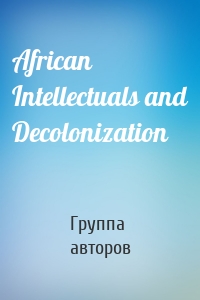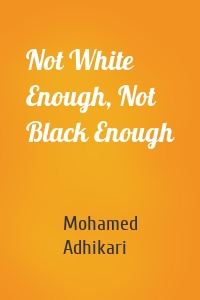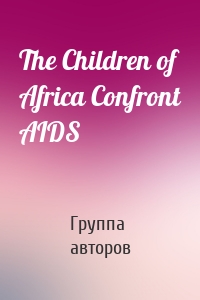Серия "Research in International Studies, Africa Series"
12 кн.Скачать лучшие книги серии Research in International Studies, Africa Series - автор Besi Brillian Muhonja в формате fb2 или читать онлайн, бесплатно и без регистрации. Читаемые, полные версии книг, без сокращений - на сайте Knigism.online. Скачать книги полностью в количестве 12 шт.
Radical Utu
Wangari Muta Maathai was a scholar-activist known for founding the Green Belt Movement, an environmental campaign that earned her the Nobel Peace Prize. While many studies of Maathai highlight her activism, few examine Maathai as a scholar whose contributions to various disciplines and causes spanned more than three decades. In Radical Utu: Critical Ideas and Ideals of Wangari Muta Maathai , Besi Brillian Muhonja presents the words and works of Maathai as theoretical concepts attesting to her...
| Автор | Besi Brillian Muhonja |
African Intellectuals and Decoloniz...
Decades after independence for most African states, the struggle for decolonization is still incomplete, as demonstrated by the fact that Africa remains associated in many Western minds with chaos, illness, and disorder. African and non-African scholars alike still struggle to establish the idea of African humanity, in all its diversity, and to move Africa beyond its historical role as the foil to the West. As this book shows, Africa’s decolonization is an ongoing process across a range of...
| Автор | Группа авторов |
Paths toward the Nation
In the early and mid-1940s, during the period of British wartime occupation, community and religious leaders in the former Italian colony of Eritrea engaged in a course of intellectual and political debate that marked the beginnings of a genuine national consciousness across the region. During the late 1940s and 1950s, the scope of these concerns slowly expanded as the nascent nationalist movement brought together Muslim activists with the increasingly disaffected community of Eritrean...
| Автор | Joseph L. Venosa |
The Sacred Door and Other Stories
The Sacred Door and Other Stories: Cameroon Folktales of the Beba offers readers a selection of folktales infused with riddles, proverbs, songs, myths, and legends, using various narrative techniques that capture the vibrancy of Beba oral traditions. Makuchi retells the stories that she heard at home when she was growing up in her native Cameroon. The collection of thirty-four folktales of the Beba showcases a wide variety of stories that capture the richness and complexities of an agrarian...
| Автор | Makuchi |
Your Madness, Not Mine
Women's writing in Cameroon has so far been dominated by Francophone writers. The short stories in this collection represent the yearnings and vision of an Anglophone woman, who writes both as a Cameroonian and as a woman whose life has been shaped by the minority status her people occupy within the nation-state. The stories in Your Madness, Not Mine are about postcolonial Cameroon, but especially about Cameroonian women, who probe their day-to-day experiences of survival and empowerment...
| Автор | Makuchi |
Empire in Africa
The dark years of European fascism left their indelible mark on Africa. As late as the 1970s, Angola was still ruled by white autocrats, whose dictatorship was eventually overthrown by black nationalists who had never experienced either the rule of law or participatory democracy. Empire in Africa takes the long view of history and asks whether the colonizing ventures of the Portuguese can bear comparison with those of the Mediterranean Ottomans or those experienced by Angola's neighbors...
| Автор | David Birmingham |
Africa Every Day
Africa Every Day presents an exuberant, thoughtful, and necessary counterpoint to the prevailing emphasis in introductory African studies classes on war, poverty, corruption, disease, and human rights violations on the continent. These challenges are real and deserve sustained attention, but this volume shows that adverse conditions do not prevent people from making music, falling in love, playing sports, participating in festivals, writing blogs, telling jokes, making videos, playing games,...
| Автор | Группа авторов |
Making the Mark
Why do female genital cutting practices persist? How does circumcision affect the rights of girls in a culture where initiation forms the lynchpin of the ritual cycle at the core of defining gender, identity, and social and political status? In Making the Mark, Miroslava Prazak follows the practice of female circumcision through the lives and activities of community members in a rural Kenyan farming society as they decide whether or not to participate in the tradition. In an ethnography twenty...
| Автор | Miroslava Prazak |
Not White Enough, Not Black Enough
The concept of Colouredness—being neither white nor black—has been pivotal to the brand of racial thinking particular to South African society. The nature of Coloured identity and its heritage of oppression has always been a matter of intense political and ideological contestation. Not White Enough, Not Black Enough: Racial Identity in the South African Coloured Community is the first systematic study of Coloured identity, its history, and its relevance to South African national life. Mohamed...
| Автор | Mohamed Adhikari |
African Video Movies and Global Des...
African Video Movies and Global Desires is the first full-length scholarly study of Ghana’s commercial video industry, an industry that has produced thousands of movies over the last twenty years and has grown into an influential source of cultural production. Produced and consumed under circumstances of dire shortage and scarcity, African video movies narrate the desires and anxieties created by Africa’s incorporation into the global cultural economy. Drawing on archival and ethnographic...
| Автор | Carmela Garritano |
The Children of Africa Confront AID...
AIDS is now the leading cause of death in Africa, where twenty-eight million people are HIV-positive, and where some twelve million children have lost one or both parents to AIDS. In Zimbabwe, 45 percent of children under the age of five are HIV-positive, and the epidemic has shortened life expectancy by twenty-two years. A fifteen-year-old in Botswana or South Africa has a one-in-two chance of dying of AIDS. AIDS deaths are so widespread in sub-Saharan Africa that small children now play a new...
| Автор | Группа авторов |













